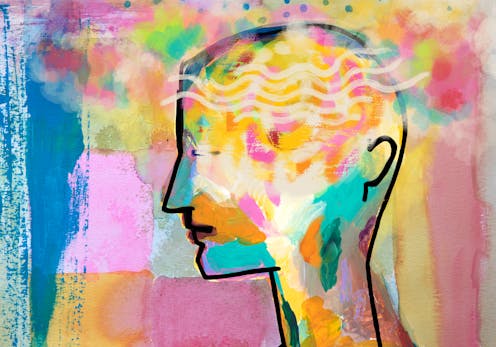Introduction to the Healing Power of Music
Music has always played a significant role in human life. It has the power to evoke emotions, bring people together, and even heal. In recent years, there has been a growing recognition of the therapeutic benefits of music, particularly in the field of healthcare. Music therapy, a practice that uses music to address physical, emotional, cognitive, and social needs of individuals, has gained popularity as a complementary treatment for various conditions, including dementia.
Understanding Dementia and its Effects on Patients
Dementia is a general term that refers to a decline in cognitive ability severe enough to interfere with daily life. It is not a specific disease but rather a syndrome characterized by a group of symptoms associated with a decline in memory, thinking, and reasoning skills. Common symptoms of dementia include memory loss, difficulty with language and communication, impaired judgment, and changes in mood and behavior.
In Australia, dementia is a significant health issue, with over 400,000 people currently living with the condition. It is estimated that by 2050, the number of people with dementia will increase to over 900,000. Dementia not only affects the individuals diagnosed with the condition but also has a profound impact on their families and caregivers.
Music Therapy: How it Works
Music therapy is a specialized form of therapy that uses music to address the physical, emotional, cognitive, and social needs of individuals. It is a holistic approach that recognizes the power of music to engage and stimulate the brain, evoke emotions, and promote overall well-being.
In healthcare settings, music therapy is used to support individuals with a wide range of conditions, including dementia. It can be delivered in various ways, such as individual or group sessions, and can be tailored to meet the specific needs and preferences of each patient. Music therapists are trained professionals who use music interventions, such as singing, playing instruments, and listening to music, to achieve therapeutic goals.
The Benefits of Music Therapy for Dementia Patients
Music therapy has been shown to have numerous benefits for dementia patients. It can improve the quality of life for individuals with dementia by reducing agitation and anxiety, enhancing mood and emotional well-being, and promoting social interaction and communication.
Research studies have consistently demonstrated the positive effects of music therapy on dementia patients. For example, a study published in the Journal of Alzheimer’s Disease found that music therapy led to significant improvements in cognitive function, behavioral symptoms, and quality of life for individuals with dementia. Another study published in the Journal of Music Therapy showed that music therapy reduced agitation and improved social interaction in dementia patients.
Case Studies: Success Stories of Music Therapy in Australia
There are numerous success stories of music therapy in action in Australia. One such example is the case of John, a 75-year-old man with advanced dementia. John had become increasingly withdrawn and agitated, making it difficult for his family to care for him at home. After starting music therapy sessions, John’s mood improved, and he became more engaged and communicative. His family noticed a significant reduction in his agitation and an overall improvement in his quality of life.
Another success story is the case of Mary, an 80-year-old woman with dementia who had difficulty with verbal communication. Through music therapy, Mary was able to express herself and connect with others in ways she couldn’t through words alone. Her family and caregivers noticed a marked improvement in her ability to communicate and engage with her surroundings.
The Role of Music in Memory Retrieval and Emotional Regulation
One of the remarkable aspects of music therapy for dementia patients is its ability to trigger memories. Music has a unique way of accessing deep-seated memories and emotions, even in individuals with advanced dementia. This is because music is processed in multiple areas of the brain, including those associated with memory and emotion.
Research has shown that music can activate neural pathways associated with memory retrieval, allowing individuals with dementia to access memories that may otherwise be inaccessible. This can be a powerful tool for reminiscence therapy, where music is used to evoke memories and stimulate conversation and engagement.
In addition to memory retrieval, music therapy can also help regulate emotions in dementia patients. Music has the ability to elicit strong emotional responses, and therapists can use this to help individuals with dementia express and process their emotions. This can be particularly beneficial for individuals who may have difficulty verbalizing their feelings.
The Science behind Music Therapy for Dementia Patients
The therapeutic effects of music on the brain have been the subject of extensive research. Neuroimaging studies have shown that listening to music activates multiple areas of the brain, including those involved in memory, emotion, and reward. This suggests that music has a unique ability to engage and stimulate the brain, even in individuals with cognitive impairments.
Studies have also shown that music therapy can stimulate cognitive function in dementia patients. For example, a study published in the Journal of the American Geriatrics Society found that music therapy improved cognitive function and reduced symptoms of depression in individuals with mild to moderate dementia. Another study published in the Journal of Clinical Psychology showed that music therapy improved cognitive function and reduced behavioral symptoms in individuals with Alzheimer’s disease.
Music Therapy Techniques and Approaches for Dementia Patients
There are various techniques and approaches used in music therapy for dementia patients. These can include singing, playing instruments, improvisation, and listening to music. The choice of technique depends on the individual’s preferences, abilities, and therapeutic goals.
For example, singing can be a powerful tool for individuals with dementia, as it engages multiple areas of the brain and can promote social interaction and communication. Playing instruments, such as drums or percussion instruments, can also be beneficial, as it allows individuals to express themselves creatively and engage in a sensory experience.
When implementing music therapy for dementia patients, it is important to consider the individual’s preferences and musical background. Some individuals may have a strong connection to certain genres or songs, and incorporating these into therapy sessions can enhance engagement and emotional response.
The Future of Music Therapy in Australia: Challenges and Opportunities
While music therapy has gained recognition as a valuable treatment option for dementia patients, there are still challenges to its widespread implementation in Australia. One of the main challenges is the lack of funding and resources for music therapy programs in healthcare settings. Many healthcare facilities do not have dedicated music therapy departments or trained music therapists on staff.
However, there are opportunities for growth and expansion of music therapy in Australia. The increasing prevalence of dementia and the growing body of research supporting the effectiveness of music therapy provide a strong case for its integration into dementia care. Additionally, there is a growing awareness of the importance of person-centered care and non-pharmacological interventions in dementia care, which aligns with the principles of music therapy.
Conclusion: The Importance of Music Therapy in Dementia Care and Treatment
In conclusion, music therapy has the potential to significantly improve the quality of life for individuals with dementia. It can reduce agitation and anxiety, enhance mood and emotional well-being, promote social interaction and communication, and stimulate cognitive function. The therapeutic effects of music on the brain have been well-documented, and research studies have consistently shown the positive effects of music therapy for dementia patients.
It is crucial for healthcare professionals and caregivers to consider music therapy as a treatment option for dementia patients. By integrating music therapy into dementia care, we can provide individuals with a non-pharmacological and holistic approach to managing their symptoms and improving their overall well-being. Music has the power to heal, and it is time we harness its potential in the field of dementia care.
Find out how Torongo Therapyplus can help you with your needs. Get in touch with us at smile@torongo.life, or call us on 02 8809 9965.






























